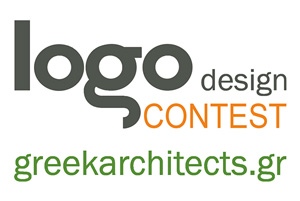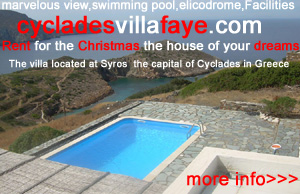STUDENTS PROJECTS
PROJECTS2012

28 February, 2013
Redesign of the coastal zone in the area of Megara, Greece
Mainspring of this redesign constitutes the reevaluation of the natural terrain and the upgrading of important landmarks in conjunction with the "structuring" use of green in design.
Student: Sakerli Maria
Supervisors: Konstantinos Moraitis, Minas Agelidis
Faculty: National Technical University of Athens, Greece, School of Architecture
Date of presentation: 29 March 2012
Subject of this project is the redesign of the coastal zone of Varea, included in the region of Megara Attikis. It is a peri - urban area with special natural beauty and morphology.

Megara is one of the most ancient towns in Greece the economy of which always based in agriculture, livestock, fishing and trade. The coastal zone of Varea corresponds to the town's port in ancient years, which took its current form through the sediments that have been carried through the streams over the years in the area. In later years is separated from the modern town of Megara by artificial barriers - national level road axes and railway lines (Suburban railway) - whereas through the last three decades huge residential development is being observed in the area initially with the form of holiday resident and subsequently with the form of permanent resident. Cultivations of peanut and olive trees always existed in the area of Varea and they still do.

The coastal zone, in which we intervene, is situated in gentle terrain with the sole exception of the small hill of Palaiokastro to the east, the only archeological site in the area. The zone is split in sub-sections by three natural streams the most important of which is Mavraja stream to the east and an artificial one. The existence of incompatible land uses causes important environmental problems; the most serious one is the pressure that is exerted by the existence of disparate residence along the sensitive coastal front. The project of redesign of the entire area (urban and rural) addresses this problem by proposing appropriate zones and conditions for the residential building, in the frame of a sustainable development strategy.



The proposal focuses on the shaping of the open space through an ecological approach and yields new significance to important existing buildings, which are related to the town's agricultural past and history, such as the building of the Wine Cooperation to the east. The areas of the natural terrain are reevaluated and upgraded through the formation of a coastal and 'internal' footpaths - bicycle races, which are constructed with an organic, ecological material called stabilizer. Light structures such as wooden benches, kiosks, pubs are also added while main design instruments are the "structuring" use of green and new planting features embedded in the existing cultivations. The redesign of the two sides of Mavraja stream is fulfilled with a footpath, a bicycle race and planting along it, which leads to the town of Megara and connects the two areas. In the small squares that are formed along the stream small wooden kiosks are situated, in which exhibitions of local agricultural products such as wine, honey, olive oil and eggs are being carried out.



The archeological hill of Palaiokastro, which is situated to the right of Mavraja stream near its outfall, is also marked out through the creation of a whorled beam, which leads to the archeological site while at the foothills a small, wooden theatre is constructed. Footpaths and bicycle races are also created round the building of the Wine Cooperation, which is situated to the left of Mavraja stream, while on the front of it, which communicates with the coastal footpath, a small coastal square is created. Part of the building is converted to an exhibition room where the history of the wine in the area is exhibited. In the same way the other smaller stream is redesigned to the west.











